News
FG spent $15bn on debt servicing in five years — CBN report
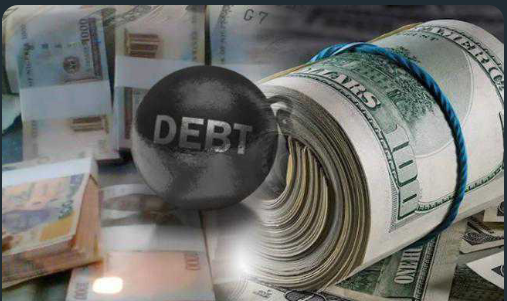
By Kayode Sanni-Arewa
The Federal Government has spent a total of $15.55bn on debt servicing between 2019 and 2024, according to the latest data from the Central Bank of Nigeria.
In 2019, Nigeria paid $588.33m in debt service between January and May, while the payment for 2020 was $5.40bn.
The debt service payments continued to rise in subsequent years, with $2.02bn paid in 2021, $2.34bn in 2022, and $3.43bn in 2023.
Between January and May 2024, the country has paid $2.18bn in debt service, according to the CBN’s data.
This is 270.9 per cent increase compared to the first five months of 2019 which was $588.33m.
The $2.18bn, in May 2024 is nearing half of the $4.8bn projected by Fitch Ratings for the year.
This increase is despite the government’s assertions that it is shifting its focus towards domestic borrowing.
Fitch Ratings also predicts that the country’s external debt servicing will escalate by $400m to $5.2bn next year, raising concerns about Nigeria’s debt sustainability.
According to the CBN International Payments Data, the FG spent the highest on debt financing within the last five years in 2020 which amounted to $5.40bn.
Nigeria’s external debt service payments saw a significant increase of $1.1bn, reaching $3.5bn in 2023, according to FBNQuest Research.
This breakdown comprises $1.9bn in market debt payments and $1.6bn in non-market debt payments. Furthermore, the Federal Government plans to take on additional external debt, including N1.8tn in commercial borrowing and N1.1tn in concessional loans, as outlined in the 2024 budget.
FBNQuest Research expects a further increase in external debt service payments, mirroring Fitch Ratings’ predictions, due to the government’s plans to access commercial debt markets and anticipated growth in borrowings from concessional sources.
Recently, the government received $2.25bn from the World Bank to support President Bola Tinubu’s economic reforms.
The two-fold packages include $1.5bn for the Nigeria Reforms for Economic Stabilization to Enable Transformation Development Policy Financing Program and $750m for the Nigeria Accelerating Resource Mobilization Reforms Program-for-Results.
The Minister of Finance and Coordinating Minister of the Economy, Mr. Wale Edun, said, “We have undertaken bold and necessary reforms to restore macroeconomic stability and put Nigeria on a path to sustainable and inclusive economic growth. These reforms will create quality jobs and economic opportunities for all Nigerians.”
This loan, described as “virtually a grant” by Edun, is expected to support the government’s economic reforms and development initiatives.
The report noted that the principal programme development objective is to raise non-oil revenues and safeguard oil and gas revenues.
News
Enugu Reps PDP Caucus Welcomes LP Members To Its Fold
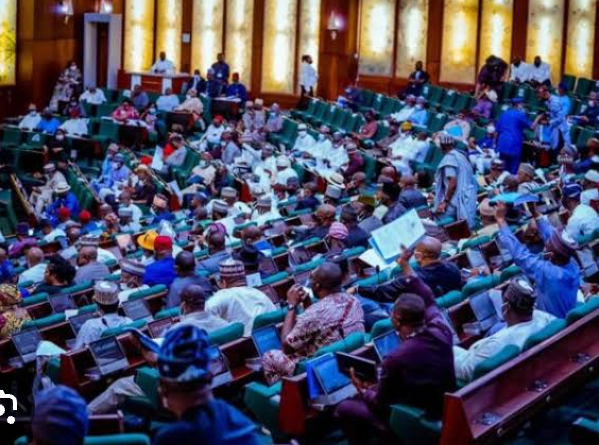
Members of the Enugu State Caucus of Peoples Democratic Party, ( PDP) in the House of Representatives, Rt. Hon. Nnolim Nnaji , Rt. Hon. Martins Oke and Hon Anayo Onwuegbu have welcomed Rt. Hon. Dennis Agbo and Hon. Chidi Mark Obeta of Labour Party, (LP) to the PDP fold.
They observed that the visionary leadership of Dr Peter Ndubuisi Mba in Enugu State has ignited massive decamps and unprecedented upsurge of membership of the Peoples Democratic Party, (PDP) in the state.
The caucus in a statement issued after the two members of the House of Representatives, Rt. Hon Dennis Agbo of Igboeze North/ Udenu and Chidi Mark Obeta who represents Nsukka/Igboeze South formally announced their transfer of membership to PDP at the resumption of House plenary on Tuesday said it was gladdening to receive them into the PDP fold.
They stressed that PDP in Enugu State was witnessing a great rebirth as a result of the transformative development agenda being unleashed in various sectors of the economy of the state by Governor Mba which has received global commendations.
The Enugu State caucus Leader, Rt. Hon. Nnolim Nnaji on behalf of the members further noted that Governor Mba’s investments in infrastructure, agro economy, and security among others have made Enugu State a tourist’s haven adding that with the good governance structure he has put in place, his second tenure would be a walkover.
News
2025 budget: Tinubu Seeks NASS Approval For N1.784trn FCT Statutory Budget
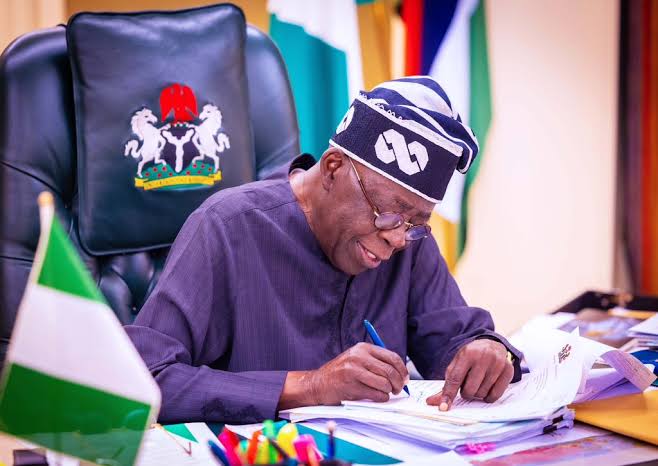
News
Finally , DTHA becomes one party assembly as Speaker, 21 other PDP members defect to APC
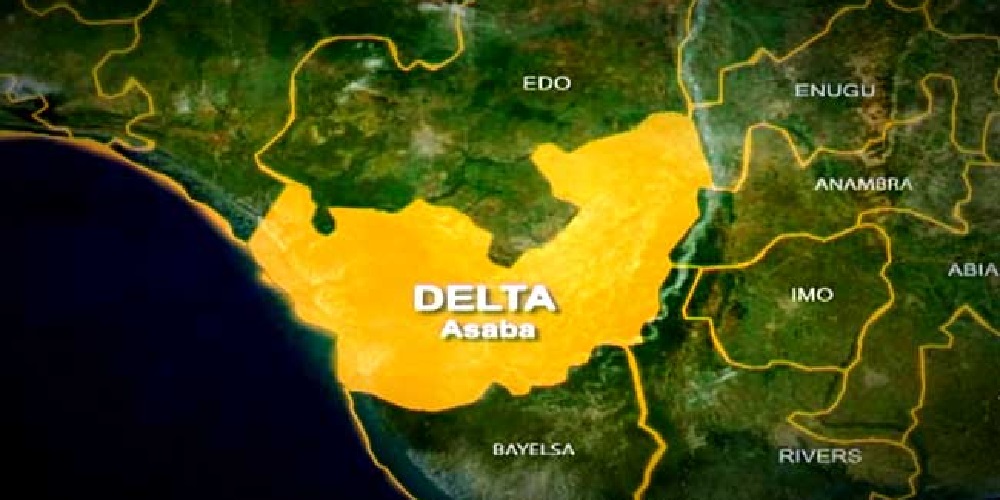
Speaker of the Delta State House of Assembly, Rt. Hon. Emomotimi Guwor, along with twenty-one other former members of the Peoples Democratic Party (PDP), elected into the Assembly has officially defected to the All Progressives Congress (APC), following a major realignment of political stakeholders across the state.
The defection of the twenty-two lawmakers has effectively transformed the Delta State House of Assembly into a one-party legislature, as the remaining seven members were originally elected on the ticket of the APC.
Announcing the development on Tuesday during the resumption of plenary after the Easter break, the Speaker stated that the decision was the result of extensive consultations with their constituents and political leaders throughout the state.
He emphasized that the move aligned with Section 109 of the 1999 Constitution, as amended.
While expressing appreciation to members for their contributions so far, Guwor urged the House to ensure the completion of all pending bills as the second legislative session nears its end.
He noted that the political shift towards the APC was in response to the realignment of stakeholders and the desire to align with the Federal Government under President Bola Tinubu’s leadership.
“The mass defection of members of the Peoples Democratic Party, led by Governor Sheriff Oborevwori, to the All Progressives Congress was made in the overall interest of Deltans and the state,” the Speaker said.
He explained that the decision followed extensive consultations held on April 23 and which cumulated on the official reception on April 28, 2025, at the Government House and the Cenotaph, respectively.
He said: “We are fully committed to partnering with the Federal Government to deliver greater development to Deltans.
“On behalf of the House, I commend the courage and visionary leadership of our Governor, Rt. Hon. Sheriff Oborevwori, in making this strategic and timely decision.
“As a legislative body, we stand with His Excellency in this endeavour. This renewed partnership between the state and Federal Government must be supported and allowed to flourish, so that we can begin to enjoy its benefits in the shortest possible time.”
He informed the House that he had received twenty-two letters (including his own) notifying of the change of party affiliation from the PDP to the APC.
The defection, he said, was driven by instability within the PDP’s national leadership and factional divisions within the South-South Zonal Executive Committee, leading to internal conflicts and disunity within the party.
Citing Section 109(1)(g) of the Constitution of the Federal Republic of Nigeria, 1999 (as amended), the Speaker affirmed the constitutional basis for the defection.
“With this action, the Delta State House of Assembly is now composed entirely of members from the All Progressives Congress. We thank our constituents for endorsing this progressive course of action”.
A motion to adopt the letters of party change was moved by the Majority Leader, Hon. Emeka Nwaobi, and seconded by Hon. Ferguson Onwo, who represents Isoko South II.
Speaking to journalists after the plenary, the Majority Leader, Hon Emeka Nwaobi reiterated that the defection was prompted by the crisis within the PDP.
“Our decision was based on the instability at the national level and the factionalization at the South-South level. Consequently, we chose to move to the ruling All Progressives Congress, in accordance with Section 109 of the 1999 Constitution, as amended,” he said.
-
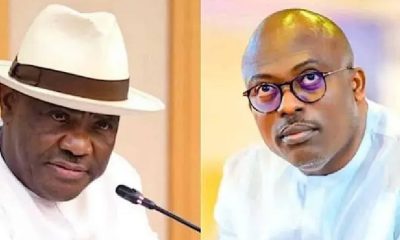
 Opinion11 hours ago
Opinion11 hours agoRIVERS, WIKE, FUBARA, AND THE WAY FORWARD
-

 Politics9 hours ago
Politics9 hours agoJust in: Delta PDP Reps members defect to APC
-

 News20 hours ago
News20 hours agoFULL STEPS: How to check 2025 JAMB results
-

 News20 hours ago
News20 hours agoMinistry denies awarding N13bn contracts without due process
-

 News15 hours ago
News15 hours agoVDM may be released on Tuesday
-

 News12 hours ago
News12 hours agoNANS Barricades Lagos-Ibadan Expressway Over Alleged NELFUND Mismanagement
-

 News12 hours ago
News12 hours agoCourt bans Nnamdi Kanu’s in-law from 3 proceedings over live streaming
-
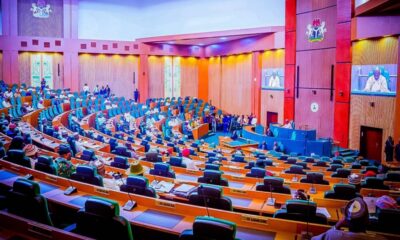
 News8 hours ago
News8 hours agoTension As Lawmakers Warns of Public Revolt Over Insecurity





